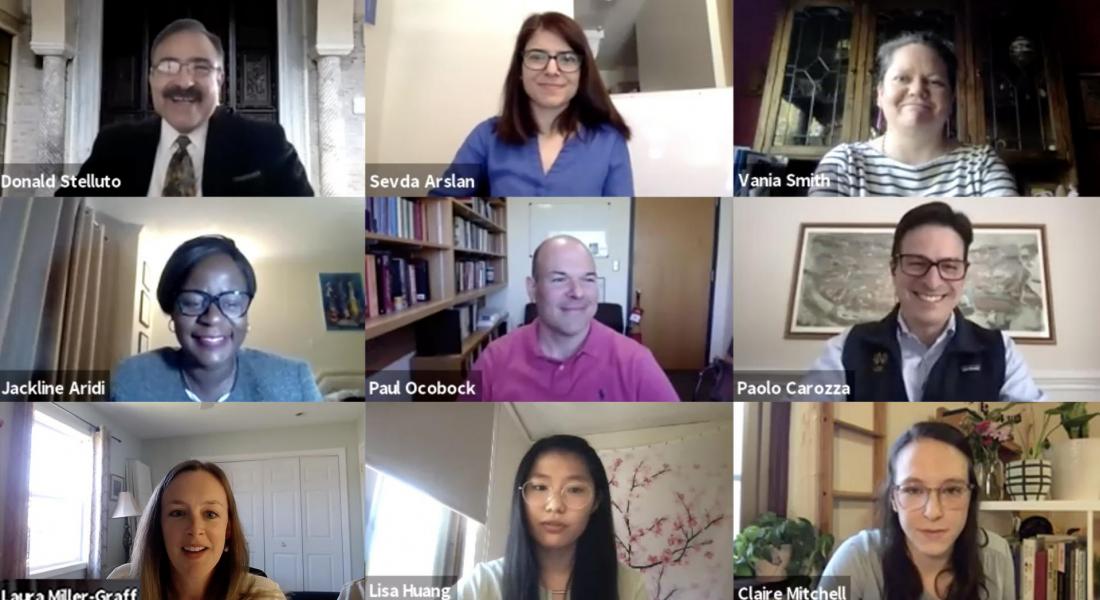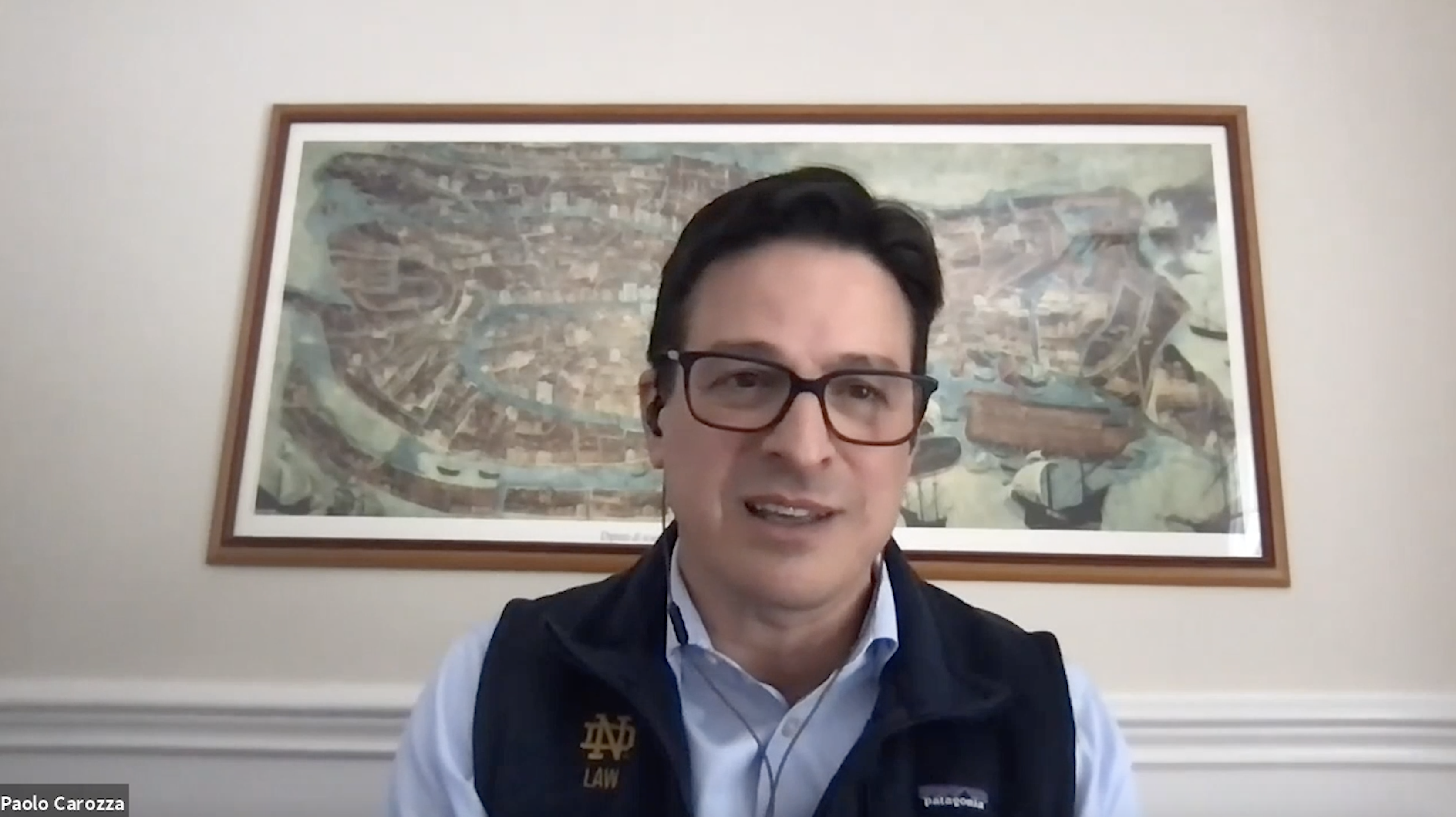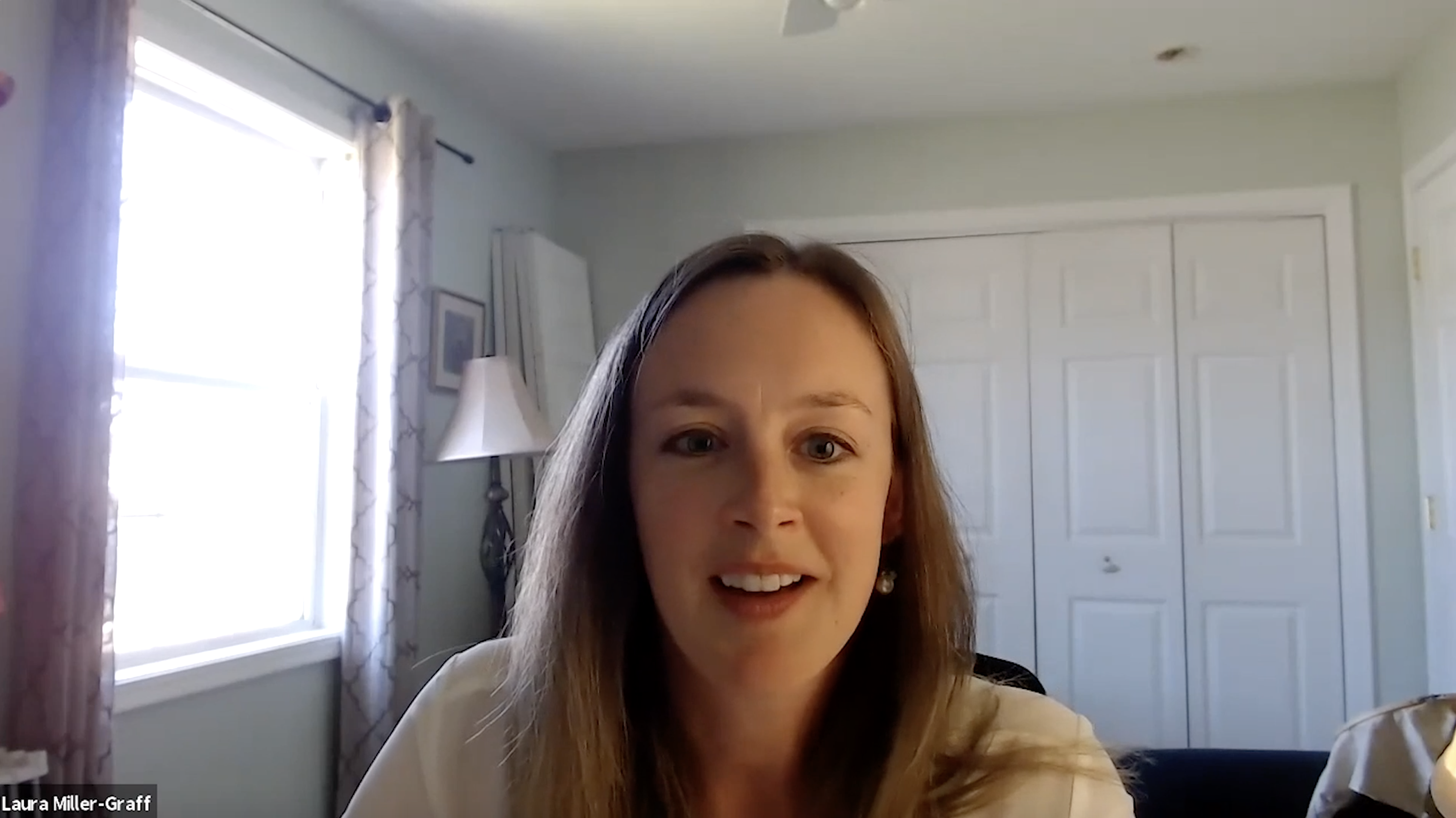
The Kellogg Institute for International Studies recently hosted a virtual panel on the role of integral human development, or IHD, in the Institute’s intellectual life and research. The event featured faculty fellows, students, and a Nairobi-based Kellogg research manager who described research projects that incorporate an IHD-centric approach and the role it plays in their work.
 Kellogg Director Paolo Carozza said the projects, which ranged from a study of empathy to the history of the coffee industry in Kenya, showcase the depth and breadth of Kellogg’s work. He noted that IHD’s focus on community-oriented development highlights Kellogg’s emphasis on relationships and its commitment to the principles of Catholic social teaching.
Kellogg Director Paolo Carozza said the projects, which ranged from a study of empathy to the history of the coffee industry in Kenya, showcase the depth and breadth of Kellogg’s work. He noted that IHD’s focus on community-oriented development highlights Kellogg’s emphasis on relationships and its commitment to the principles of Catholic social teaching.
“(IHD) involves development in a way that addresses the growth of the person and the community,” he said, adding that many of the panelists had themselves been changed by the relationships they built during the course of their research projects.
IHD is a cross-disciplinary approach to human dignity that considers the whole person and has gained growing attention from scholars in recent years. The concept is at the heart of the Keough School of Global Affairs’ mission.
Anthropologist Sevda Arslan, a Kellogg doctoral student affiliate, described her dissertation on immigrant life in urban settings and her research on a community center that served the Alevi religious community in Berlin. Through daily visits to the Alevi Community Center, she used ethnographic methods to look “into the human experience from a holistic view, and it helped me to get a more nuanced understanding about the complexities and the interplay between the community members and the institutional setting that was provided by the center,” she said.
Panelist and Faculty Fellow Laura Miller-Graff , an associate professor of psychology and peace studies and a core faculty member at the Kroc Institute for International Peace Studies, said “an IHD perspective really affects all aspects of the research process,” from the types of questions scholars ask to the method in which they engage participants.
 “The questions that we’re asking are really long-range questions about flourishing and development over time,” said Miller-Graff, who studies person-centered maternity care in Kenya and interventions for pregnant women in Peru who experience intimate partner violence.
“The questions that we’re asking are really long-range questions about flourishing and development over time,” said Miller-Graff, who studies person-centered maternity care in Kenya and interventions for pregnant women in Peru who experience intimate partner violence.
She noted the importance of establishing relationships and trust between the researchers and the communities they study.
“The sustained engagement of the research team is really important,” she said. “It’s certainly a challenge in times like COVID when we are physically unable to be together, but it’s something that for us that has been a really life-giving part of our work and it’s always a goal we have in mind.”
The May 13 panel was part of a year-long series on IHD within the Keough School and is the launching point for a more in-depth series of discussions at Kellogg about IHD.
Other panelists were Lisa Huang ’21, Claire Mitchell ’21, Paul Ocobock, Jackline Oluoch-Aridi, and Vania Smith-Oka.
Watch a video of the panel, which includes participants discussing their research projects below.





